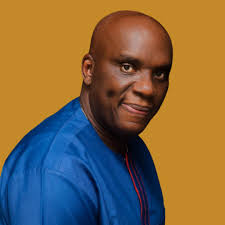In a dramatic response to accusations from key opposition figures, the All Progressives Congress (APC) has vehemently dismissed bribery claims allegedly orchestrated by the ruling party to destabilise opposition groups. The party’s national publicity secretary, Felix Morka, addressed these allegations—particularly those made by former Vice President Atiku Abubakar, Labour Party’s Peter Obi, and former Kaduna State Governor Mallam Nasir El-Rufai—in what he described as a “desperate” attempt to shift blame for internal party challenges.
At a conference titled “Strengthening Democracy in Nigeria,” Atiku and Obi had insinuated that the APC, under President Bola Tinubu’s leadership, was allegedly paying out N50 million to opposition leaders in a covert scheme to destabilize their parties. The claims, which have gained traction in certain political circles, were described by APC spokesperson Morka as “bogus” and “laughable,” designed to divert attention from the internal struggles faced by the opposition parties.
“The suggestion that our party, the APC, is involved in bribing opposition figures is utterly baseless,” Morka said in a press statement. “It is nothing more than a misguided effort by desperate politicians who are losing control of their respective parties. These are individuals whose political relevance is waning, and they are clutching at straws in a futile attempt to regain some semblance of authority ahead of the 2027 elections.”
Morka particularly targeted Atiku, labeling his claims as part of a pattern of behavior that has seen the PDP leader embroiled in multiple electoral litigations. According to the APC spokesperson, Atiku’s criticisms of the judicial process, especially concerning electoral disputes, were inconsistent with democratic principles. “Atiku, who is Nigeria’s most prolific electoral litigant, should understand that democracy is about respecting the will of the people, not manipulating the system to achieve personal goals,” Morka stated.
The APC’s rebuke comes in the wake of escalating tensions within Nigeria’s opposition parties. Atiku, in his address, had criticized both the judiciary and the ruling APC, accusing them of undermining democracy through various tactics. However, Morka noted that Atiku’s call for judicial reform should be scrutinized, given his own history of challenging election results.
“Instead of attacking the judiciary, it would be more constructive for Atiku to focus on strengthening his party,” Morka suggested. “His continuous failure to unite the PDP and address its internal crises speaks volumes about his leadership capabilities.”
The statement also targeted Peter Obi, the Labour Party candidate, who, alongside Atiku, had echoed concerns about the alleged bribery plot. “Obi, like Atiku, is attempting to create distractions in the face of his own party’s disarray,” Morka added, further dismissing Obi’s claims as part of a larger effort by opposition figures to garner public sympathy ahead of future elections.
Former Kaduna Governor Nasir El-Rufai was also mentioned in the APC’s response, with Morka referring to his involvement in the allegations as a “bizarre suggestion.” El-Rufai, who has been vocal in his criticisms of the APC in the past, had joined in accusing the ruling party of orchestrating a grand conspiracy to divide opposition ranks.
The APC, in its response, questioned the integrity of opposition leaders who were allegedly unable to manage the affairs of their own parties while attempting to govern a nation as complex as Nigeria. “They have failed to maintain unity within their own ranks, yet they speak of governing the country. How can anyone trust them to manage Nigeria’s vast resources and challenges?” Morka remarked.
Political analysts, however, suggest that the latest war of words between the ruling party and opposition figures underscores the growing polarization of Nigeria’s political landscape. The escalating tension could be seen as a precursor to the intense political battles expected in the lead-up to the 2027 general elections. The issue of bribery and alleged corruption has often been a central theme in Nigerian political discourse, but claims of large-scale financial manipulation by the ruling party are rarely substantiated with concrete evidence.
For the APC, this is not the first time it has been accused of using underhanded tactics to undermine opposition parties. However, Morka’s statement is likely an attempt to discredit the accusations and reassert the APC’s narrative as the party of stability and progress. “We will not be distracted by baseless allegations,” he stated, further calling on opposition leaders to focus on offering solutions to Nigeria’s numerous challenges.
The APC’s strong rebuttal to these allegations comes amidst heightened political tension in the country. As the 2027 elections approach, Nigerian citizens are increasingly looking for clear alternatives to the entrenched political figures, many of whom have been accused of corruption or inefficiency in the past.

